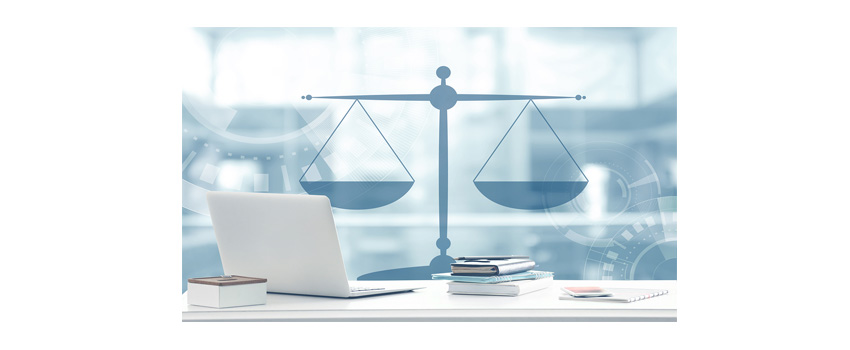Technology law has existed for more than a century, but has had to adjust to each new time period in history. Until the appearance of information technology, it was not considered a wholly separate field. During this past quarter century, however, the increasing pace and influence of technological innovation on our society have forced lawyers to take a closer look at it. There are many legal issues that stem from new technology, which require lawyers to continually adjust in order not to be left behind.
Technology law overview
Many turbulent periods have marked technology law in 30 years. First, there was the first test-tube baby, in the 1980s, a technological triumph of life that nevertheless provoked vital questions on birth law, family law, etc. Ongoing innovation in the genetic and biomedical fields have since then raised a number of legal issues.
As for information technology, the rise of the Internet for all in the 1990s turned the field upside down and led to huge legal gaps.
Legislative challenges
For lawyers, the speed of innovation in this sector is quite a headache. In order to avoid being left behind by events, legislators must always maintain a neutrality that is not limited to one technology in particular. If this were not the case, the law would only apply to a single, quickly superseded case, which is what happened in the Yukon: a bill was tabled, but became obsolete before it was even passed into law!
To address these challenges, traditional law is slowly adapting to new uses of technology. “Some laws are amended, such as the admissibility of electronic evidence. But sometimes one is facing a legal gap,” explains Sophie Rompré, a lawyer specializing in technology law.
In such cases, lawyers will search for an analogy to provide a comparative framework. With the arrival of the automobile, for instance, there was no specific applicable law, but the laws in effect for transportation by horse were adapted.
Moreover, technological complexity is an additional issue: technologies are much more difficult to regulate when we don’t have a handle on them, as is the case for nanotechnology in particular. “No one yet knows how they will be deployed. Nanotechnology enables so many things. . . What are the issues and risks involved? It’s very difficult to predict,” says Pierre Trudel, professor at the Law faculty of the Université de Montréal.
A promising field
According to professor Pierre Trudel, “Technology law is a promising field. Mainly innovative companies are recruiting to produce conflict resolution tools, know their rights, and familiarize themselves with patents, privacy laws, licence contracts and libel problems.” Conversely, law firms are hiring fewer technology law experts right now.
Many start-ups would greatly need the services of a lawyer, but they are still too young and small to be able to afford it. After their first round of financing, they can hire a corporate lawyer.
Start-ups often use the services of firms—called “boutique law firms”—that advise emerging businesses. These businesses hire lawyers to work on project management teams. Legal skills, including new technology law, are required, along with other more general business capabilities.
The field of new technology law even risks running short of people. . . Many legal questions are examined by lawyers lacking specific expertise in technology law. Moreover, there are not yet enough graduates to fill the need, because they tend to go into more traditional sectors. The reason is that when they imagine themselves lawyers, the words “contract,” “protection,” and “tribunal” come up, but not yet enough “innovation.”
If you want to work in a stimulating environment, have a curious nature and are keen on technical matters, then technology law is for you!
Current issues
The arrival of the Internet, digital technology and peer-to-peer networks has generated many questions, particularly in the area of copyright. In this regard, many people are are asking themselves whether the virtual world should be regulated differently than the physical one, or if traditional copyright legislation should be adapted to new digital environments. Adaptation does not appear to be easy, however. In Canada, the Copyright Act has still not been amended by legislators to apply to new digital environments, as opposed to the United States and Europe.
The legality of downloading music from peer-to-peer networks therefore remains very controversial. As Sophie Rompré, corporate lawyer for StreamTheWorld points out, “The popularity of peer-to-peer networks means that authors lose control over the distribution of their works. If there were a private copying levy for digital audio recorders, such as iPods and MP3 players, and USB keys, as is done in France, it could help make up for the losses suffered by copyright holders. The question goes much deeper, however. With the rapid evolution of technologies allowing copyright holders to control access and copying of musical works, the interests of consumers and the right to private copies could also be infringed.”
Other matters are leading legislators to review their principles. Web2.0, in particular, is leading to new ways of looking at the role of users. The universal nature of the Internet generates questions regarding the traceability of people, political governance and the compatibility of various national jurisdictions.
Similarly, new medical technologies (e.g. prosthesis, embedded tools, genetics) require the creation of a new legislative framework.
“Our proximity to the United States ensures that we will have to face these questions sooner rather than later,” affirms Pierre Trudel. “Differing proposals have been submitted, and debates set up to move the law along, while respecting fundamental laws.”
